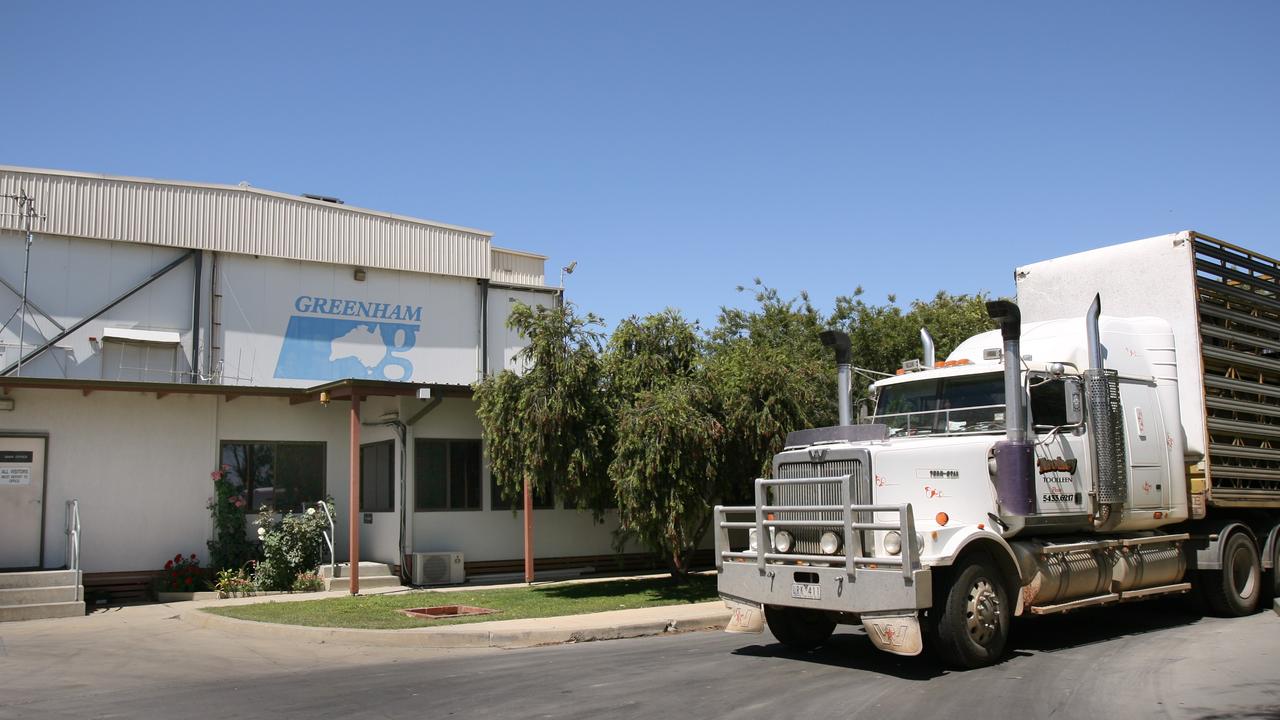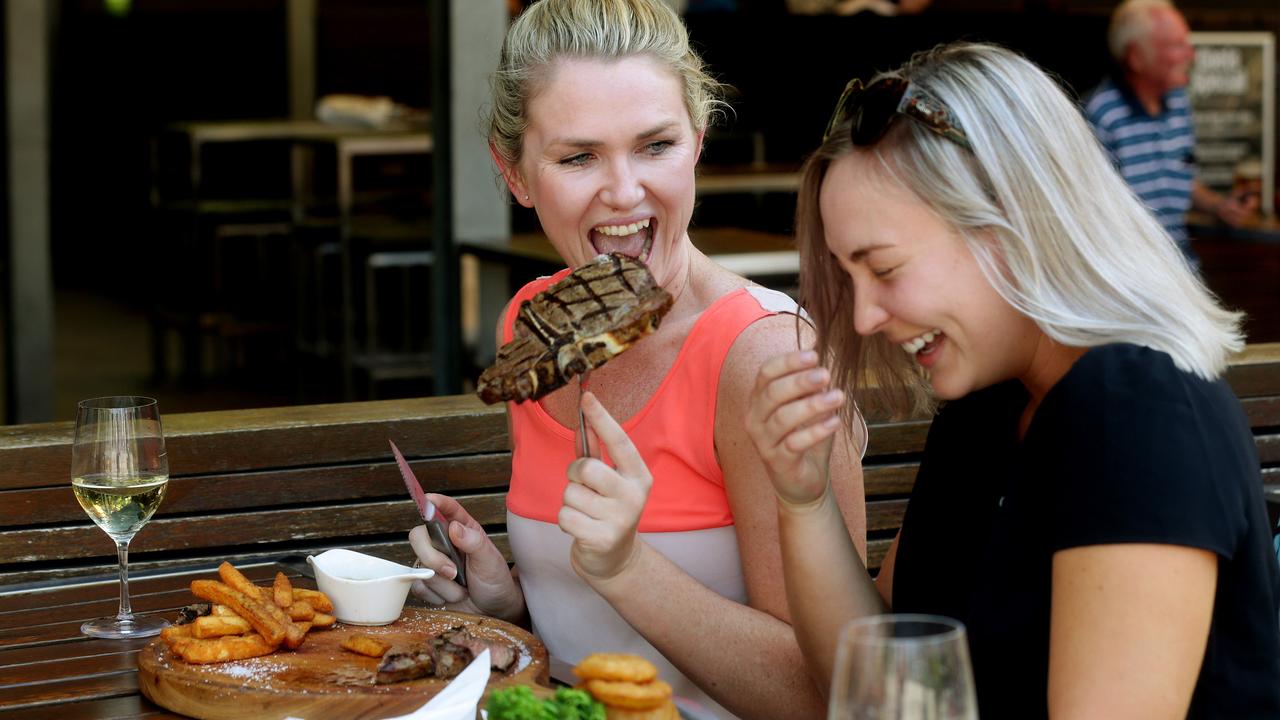Farmers’ tragic tale of nearly losing farm over alleged toxic stockfeed
Vic and Debbie Guastella share their tale of tragedy – when they were forced to bury their dead cows and nearly lost their farm of 17 years over allegedly toxic stockfeed. Graphic warning.
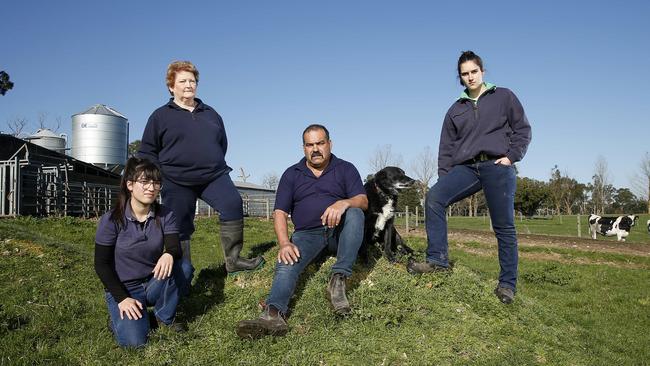
DEBBIE and Vic Guastella will never forget the weeks when 20 of their dairy cows died.
Or the days when they had to bury them.
The Guastellas, who have farmed at Hallora for 17 years and have won several prestigious awards from Dairy Australia, have experienced tough seasons and poor milk prices but that isn’t what keeps them awake at night.
In March last year Vic fed his 185 Friesian dairy cows ‘Gippsland Gold’ pellets, a product he had been purchasing through Weston Animal Nutrition for 25 years.
LEGAL BATTLE OVER CLAIMS OF DEADLY STOCKFEED
“After two days of the feed I noticed there were three or four cows that looked off. The following morning there were seven or eight and that’s when I knew something wasn’t right,” Vic said.
“I stopped giving them the feed after 10 days but by that stage the cows had already ground to a halt and weren’t milking.
“The vet came out and did some blood tests. He said the cows were showing symptoms similar to salmonella and we put them on antibiotics”.
A week after the Guastella’s cows were given the feed the whole herd was sick and the first of what would eventually become 20 cows died.
“The vet asked me what I had done different but I hadn’t don’t anything,” Vic said.
“At one stage the vet thought it might have been theileria. He was horrified because there was blood in their urine, severe scouring, they were lethargic, had ceased production and loss of appetite. They had lost heaps of weight and conditioning”.
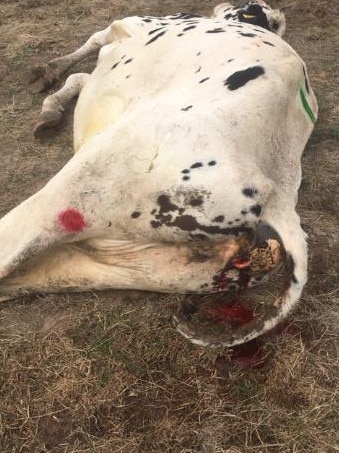
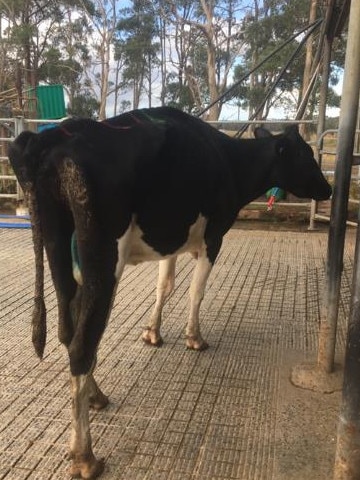
The Guastellas said the Victorian agriculture department organised blood and manure tests and an autopsy in a bid to figure out what was killing the cows.
It took weeks, and about $20,000 in tests and vet bills, for the zinc contamination to be identified.
An independent feed test eventually found the pellets contained 8330mg/kg dry matter of zinc — more than eight times the maximum amount deemed safe and about 140 times more than the estimated dietary requirement.
Zinc can be added to dairy feed to prevent facial eczema but Vic said he didn’t order any zinc.
“We didn’t even want any in there,” he said.
“I had been blaming myself, thinking it was something I had done wrong”.
The Guastellas said after the zinc contamination was found they informed Weston Animal Nutrition but neither the company nor Ridley Corporation, which manufactured the feed, had a sample of the product that was sold to them. And the Guastellas did not receive a sample when their feed was delivered.
The couple wanted the companies to compensate their losses. After several failed attempts to get representatives to come out to their farm to discuss the contamination, they engaged a lawyer and then a barrister.
Vic said he would hate to see a young dairy farming couple experience the stress and loss they have.
“I have been doing this even before I left school. And those cows that died – I started breeding them from when I first left school and they have continued on,” Vic said.
“That night when I was bringing them home, I will never ever forget it. It has taken a huge toll. And it still does.
“We were already struggling with an average season and milk price, everyone was struggling and that’s why so many dairy farmers have left the industry. And then to have that happen to us, on top of everything”.
Debbie said it was heartbreaking to see Vic come in at night.
“We don’t want other farmers to go through the same thing. It’s a story that needs to be out there,” she said.
“Other farmers might have had something similar, maybe not as severe, and just written it off as something they have done”.
Debbie said the feed contamination meant the family were now only milking 150 cows after the deaths of 20, and 45 were so sick they had to be sold.
“We lost cows but it’s also the loss of the 2019-20 production. It’s the fertility.
“We haven’t been able to replace a lot of the cows financially.
“Because we use our replacement calves, where we normally get 40 a season and last year we only got about 22. It is years of replacement stock that we aren’t going to have.
“45 cows aborted their calves. It was hard trying to get them back into calf when they were sick.
“And there are still some we haven’t been able to. We have had to sell the worst of the worst for a considerable loss”.
Despite everything they’ve been through the past 16 months, the Guastellas say their love for dairy farming is still there.
“We’ve been asking our new feed company to put additives into the feed to help regenerate the cows from the inside out,” Debbie said.
“The cows that are left are looking better and we have had a good season too which has helped.
“Some days you come in and think we nearly lost our whole farm. But you still have to continue on as a family. This is our business.
“You don’t know how you get through it. You just do.”
RELATED COVERAGE: FARMING FAMILY TO TAKE ON STOCKFEED GIANT

